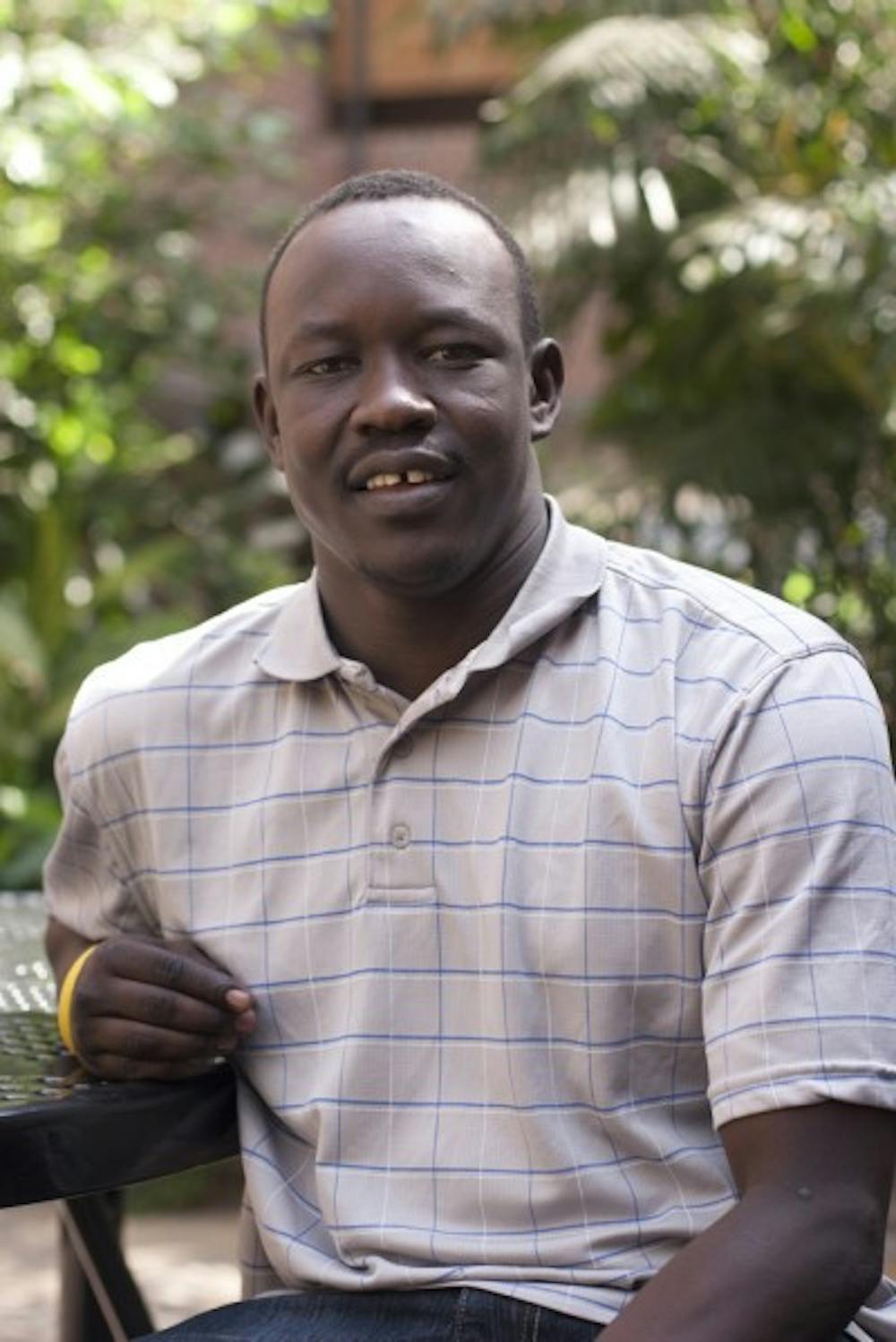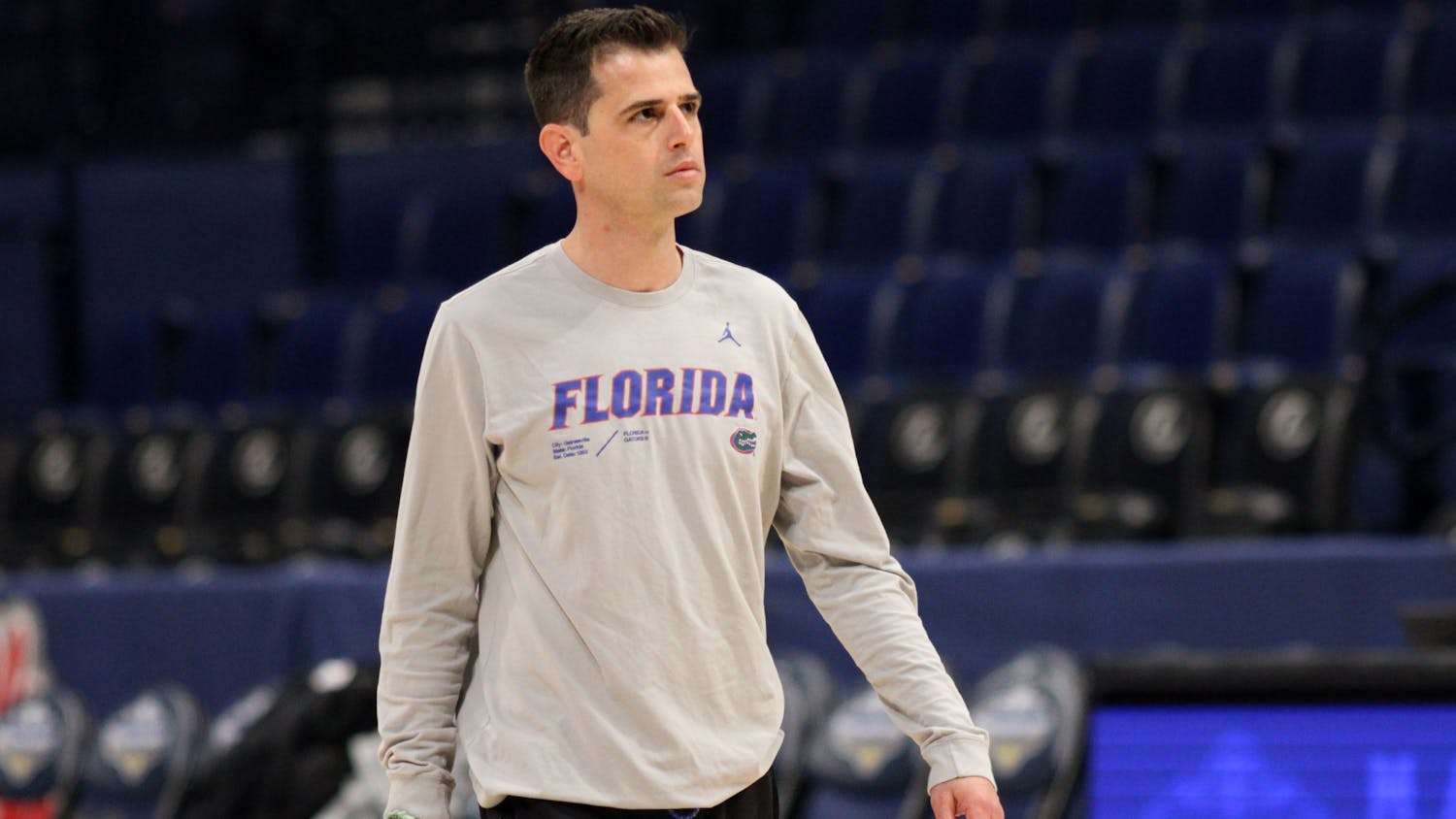Jacob Atem remembers the day his parents were killed.
He was taking care of the cattle in the field with his cousin when he saw smoke rising from his village. Enemy troops killed his parents, and his sister became a slave to an Arab Sudanese family. Atem was 6 years old.
After walking barefoot for months, suffering dehydration and malnutrition and watching thousands of other children die along the way, Atem found refuge in Ethiopia and was eventually sent to America by a nonprofit organization.
Atem is one of the more than 20,000 “Lost Boys of Sudan,” a group of children who were orphaned and displaced during the Second Sudanese Civil War. He co-founded the Southern Sudan Health Care Organization, a nonprofit organization, with another survivor, Lual Deng.
“What we went through, people should never go through,” said Atem, a 26-year-old Ph.D. student in health services research and management and policy at UF.
The organization’s goal is to make Sudan safer by providing health care services to people in South Sudan. Atem said his long-term goal is to create a health clinic in Sudan that will become a model for the rest of the world to follow.
He said his education at UF will help him establish the clinic in Sudan and give him training to run the health clinic and make it sustainable.
SSHCO built its first health clinic in Maar, a village in southern Sudan, in 2011.
Chad Papa, a 22-year-old environmental science senior and president of UF’s chapter of Invisible Children, said Atem’s organization is a huge step forward.
“Having no health care to having health care is really a big milestone in Sudan,” Papa said.
Although the organization reached its initial goal to build a center in Sudan, Atem needs more funding to sustain the clinic.
Challenges include staffing the clinic as well as paying for utilities and getting medical supplies.
SSHCO is looking for volunteers and donations to raise funds to send medical equipment, including scalpels and syringes, to the clinic. Atem is also looking for students who want to understand the issues behind the political conflicts in Sudan and Africa.
Gainesville resident Peter G. Roode, a Pittsburgh-born retired surgeon who briefly lived in Sudan as a child, recently heard about Atem’s story and contacted him. Roode is following him to Sudan in a few weeks to perform surgeries and help Atem at the new clinic.
Sixty years ago, Roode’s father was in Sudan and a man from the woods offered to help him get by in an unfamiliar land. Now, Roode hopes to help Atem in his journey.
“I’m a brother to Jacob,” Roode said. “Even if we have different skin colors.”
“People call us ‘the lost boys of Sudan,’ but we’re not really lost,” Atem said. “We’re finding our way to a better world of hope.”
For more information or to donate to the Southern Sudan Health Care Organization, visit www.sshco.org.
Jacob Atem poses inside Weimer Hall on Wednesday.






